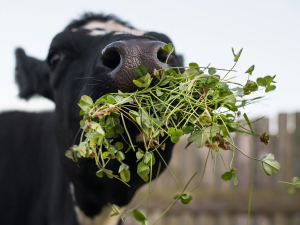EPA remains committed to deliver improved outcomes
OPINION: At the end of my first year as chair of the Environmental Protection Authority (EPA), I have been reflecting on the progress made in the time I have been in the role.
 The EPA has clarified that null segregants are not considered genetically modified organisms under the Hazardous Substances and New Organisms Act 1996.
The EPA has clarified that null segregants are not considered genetically modified organisms under the Hazardous Substances and New Organisms Act 1996.
Researchers are celebrating an Environmental Protection Authority (EPA) ruling that removes restrictions on the use of null segregants- descendants from genetically modified organisms but do not contain genetic modifications themselves.
The ruling paves the way for use of null segregants for accelerated breeding in horticulture. This is done by using a genetic modification that makes plants produce fruit much sooner than would normally occur. This in turn allows desirable traits, such as resistance to a particular disease, to be developed much faster using traditional, non-GM selective breeding techniques. Null segregant offspring can then be created by breeding out the genetic modification. This would vastly reduce the amount of time to bring a new variety to market.
Opportunities also include enhanced or speed breeding of productive plant species in New Zealand, and use of null segregants in conventional breeding programmes to develop new varieties of NZ-adapted ryegrass, for example.
The EPA has clarified that null segregants are not considered genetically modified organisms under the Hazardous Substances and New Organisms Act 1996.
EPA general manager hazardous substances and new organisms Dr Chris Hill says the decision provides certainty for researchers in our primary industries and brings New Zealand into line with other countries in the OECD, such as Australia and the US.
This will help New Zealand scientists keep pace with international research, Hill says.
"Our experts make independent, evidence-based decisions that take into account the latest research and international best practice," says Hill.
He explains that just as a brown-eyed parent may have a blue-eyed child who did not inherit the gene for brown eyes, plants, animals or other organisms that are descended from genetically modified organisms may not inherit their parents’ genetic modifications. This means the descendants do not contain any genetic modifications.
The introduction of any specific null segregant into the environment will be verified case by case by the Ministry for Primary Industries.
This does not change the regulations for food that contains genetically modified organisms or ingredients derived from genetically modified organisms. These come under the Food Standards Code, overseen by Food Standards Australia New Zealand (FSANZ).
The EPA ruling came after an application led by AgResearch and supported by 14 other research or industry organisations.
“This clarification does not change the way we treat genetically modified organisms used in research in New Zealand, but what it does do is give us clarity on the use of organisms that we saw as being a grey area within the regulations,” says AgResearch science team leader Richard Scott.
“We had a clear view as researchers that these null segregants were not GMOs, but now we have certainty from the EPA to support this.
“The way is now cleared for researchers to consider the opportunities to use null segregants to deliver additional research and benefits to New Zealand’s productive industries and in areas such as health, nutrition, and wellbeing.”
Coming in at a year-end total at 3088 units, a rise of around 10% over the 2806 total for 2024, the signs are that the New Zealand farm machinery industry is turning the corner after a difficult couple of years.
New Zealand's animal health industry has a new tool addressing a long-standing sustainability issue.
The Government has announced that ACC will be a sponsor of this year's FMG Young Farmer of the Year competition.
As veterinary student numbers grow to help address New Zealand's national workforce shortge, Massey University's School of Veterinary Science is inviting more veterinary practices to partner in training the next generation of vets.
South Island dairy farmers will soon be able to supply organic milk to Fonterra.
Norwood has announced the opening of a new Tasman dealership at Richmond near Nelson next month.

OPINION: Meanwhile, red blooded Northland politician Matua Shane Jones has provided one of the most telling quotes of the year…
OPINION: This old mutt has been around for a few years now and it seems these ‘once in 100-year’ weather…